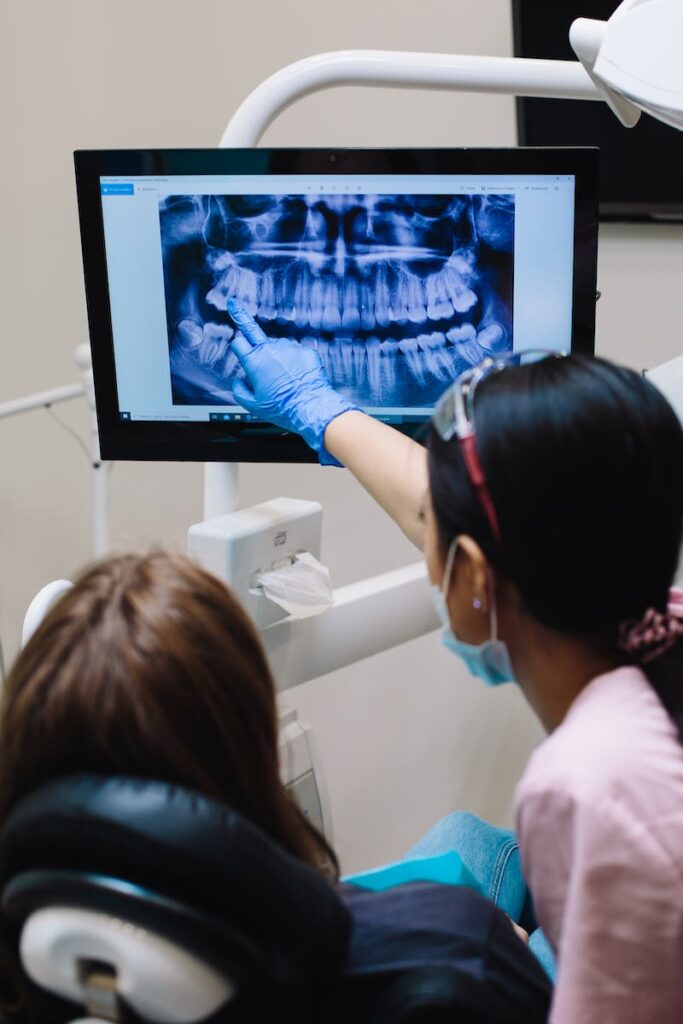Understanding Dental X-rays
What are Dental X-rays?
Dental X-rays are a vital part of any dental care treatment plan. They are diagnostic, but they can also be preventative, by helping a dentist diagnose potential oral care issues in a patient’s mouth before they become a major problem. These X-rays are used with low levels of radiation to capture images of the interior of your teeth and gums. This can help in identifying problems like cavities, tooth decay, and impacted teeth.
Types of Dental X-rays
There are several types of dental X-rays, each serving a unique purpose. Bitewing X-rays, for example, are used to view the alignment and assess the presence of cavities. Periapical X-rays focus on two complete teeth from root to crown. Others, like panoramic X-rays, provide a full snapshot of the entire mouth.
The Importance of Regular Dental X-rays

Early Detection of Dental Issues
Regular dental X-rays are crucial for early detection of dental issues. They can identify problems that might not be visible in a regular dental exam. By detecting issues early, dental X-rays can save a patient from pain, extensive and expensive treatment, and the risk of more serious health issues.
Monitoring Oral Health Progress
For patients undergoing dental treatments, X-rays serve as an essential tool for monitoring progress. They can help in tracking the progression of a dental condition and ensure that the treatment plan is effective.
Preventing Future Dental Problems
Regular X-rays can also help in preventing future dental problems. By keeping a close eye on the state of a patient’s oral health, dentists can anticipate issues that might develop and advise on preventive measures.
The Safety of Dental X-rays
Addressing the Concern of Radiation
The concern of radiation exposure from dental X-rays is common, but it’s important to know that the level of radiation exposure from dental X-rays is extremely low. Modern dental X-ray machines limit the radiation beam to the small area being x-rayed.
Advancements in Dental X-ray Technology
Advancements in technology have made dental X-rays safer and more comfortable. Digital X-rays, for example, reduce radiation exposure by up to 90% compared to traditional film X-rays.
The Role of Dental X-rays in Comprehensive Dental Care
Comprehensive Diagnosis
Dental X-rays provide a comprehensive view of the oral health of a patient, giving dentists a more thorough understanding than a visual examination can offer.
Treatment Planning
Dental X-rays play a crucial role in treatment planning. They help dentists determine the best course of action for dental procedures, from simple fillings to complex surgeries.
Best Practices for Dental X-rays
Regularity and Frequency
The frequency of dental X-rays depends on the patient’s oral health, age, risk for disease, and any signs and symptoms of oral disease. A dentist should evaluate a patient’s need for X-rays based on these factors.
Pediatric Dental X-rays
For children, dental X-rays are important to monitor the growth and development of the jaw and teeth. They help in identifying any early problems with the teeth, gums, and jaw.
Innovations in Dental X-ray Techniques
3D Imaging
Recent innovations in dental X-ray techniques, such as 3D imaging, allow dentists to see a three-dimensional view of the teeth, bones, and soft tissues. This provides a much clearer and detailed picture, aiding in more accurate diagnoses and treatments.
AI and Machine Learning in Dental Imaging
With the integration of AI and machine learning, dental imaging is becoming more advanced. These technologies help in better interpretation of X-rays, leading to more accurate diagnoses.
Conclusion
The Necessity of Regular Dental X-rays
In conclusion, regular dental X-rays are a necessary component of maintaining good oral health. They aid in early detection and prevention of dental issues, ensuring a healthy mouth and overall well-being.
Encouraging Regular Dental Check-ups
It is crucial to encourage regular dental check-ups, including X-rays, as part of a comprehensive oral health regime. These visits are key to preventing dental problems and maintaining overall health.
